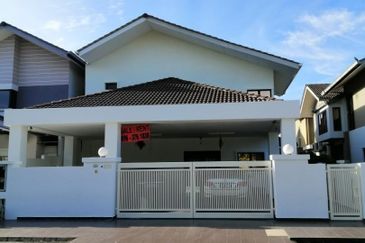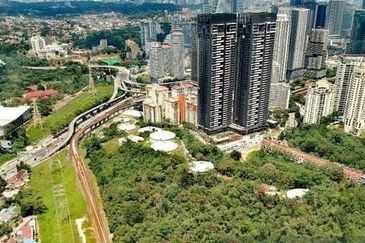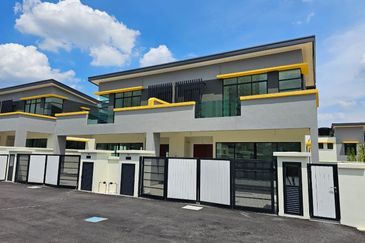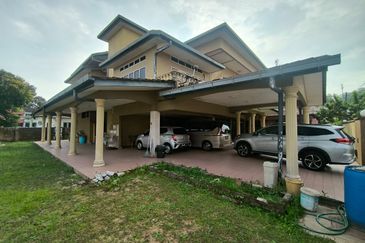
- When proprietors question the actions of staff of private agencies, they have to bark up a governance chain which leads them to the property manager, and then back to the MC and their regulator once again. Oversights and errors along this chain of command, are often swept under the rug in the name of practicality, because there are so many moving parts, and no standardised way to organise them.
I refer to a recent discussion in the Malaysian press, which includes the following eminent persons and their statements:
Dr Foo Chee Hung, MKH Bhd: “Property manager vs building manager — Are they the same?”
To summarise Dr Abdul’s and Dr Tham’s theses, they point out that “building manager” is an unregulated title, and such a scope of work is already regulated as “property management”, under Act 242 of Malaysia. They are rightly concerned — they belong to the professions of Act 242, and they want everyone in the same business to be governed by the same law.
I agree with this concern, and would like to draw further attention to a deeper underlying mess (poverty of elegance) between several Acts, ministries and government agencies in Malaysia, which participate in, or act as counterparts to the business of “property management”. Here I draft out three key issues, and for prettiness, some charts.
Issue 1: Act 757 installs local governments, staffed by volunteers who are untrained and non-incentivised to be trained.
Act 757 is defined without many references to Act 777. Many governance concerns defined in Act 777, such as the protocol management by a company secretary, and the fiduciary duties of company directors, are real concerns in the Management Corporations (MCs) created by Act 757, whereas these concerns are poorly governed by Act 757.
It may be worth considering amending Act 757 so that its MCs become a variety of Act 777’s companies, thereby grandfathering in the existing governance structures which are well-defined and commonly understood under Act 777.
This would instantly assign the conduct of general meetings and committee meetings under Act 757, to the oversight of trained and chartered sub-specialised company secretaries. Without such professional oversight, the conduct of general meetings and committee meetings currently tends towards haywire.
Issue 2: Act 242 has been expanded beyond its original scope — and not in a clear way, resulting in a lack of clarity about fiduciary duties for thousands of legal entities in Malaysia.
The Board of Valuers, Appraisers, Estate Agents and Property Managers ( BOVAEP) sits under Act 242 and the Ministry of Finance (MOF). These were initially set up to regulate financial transactions of real estate assets, but over time acquired an extended scope to regulate the operational management of real estate assets, including certain non-financial matters. In criticising the letter of the law, it seems clearly beyond the scope of the MOF to be regulating the “general management, maintenance, and control of land and buildings for fees” … when there are numerous other agencies already established to handle this broad swath of non-financial matters, which may be technical, humanistic and sundry.
To the man on the street, terminologies such as “building management”, “facilities management” and “property management” sound very similar and might as well refer to the same set of things. In fact, we have many non-statutory bodies containing such phrases in their organisations’ titles. However, it is important to note that the terms “building management” and “facilities management” are not yet regulated by Malaysian law. Whereas the term “property management” is legally regulated under Act 242, and may be interpreted to mean, either narrowly “the financial management of real estate premises” or “the general management of real estate operations”.
One criticism raised has been that there are “unregulated entities conducting property management while dodging the oversight of BOVAEP”. While this may be true, it does not address the mess created by the wording of Act 242. The property managers here have come up with “codes of practice” such as the “Malaysian Property Management Standards (2016)”, but documents such as these are far from complete, and lacking in technical details, resulting in a very broad variety of implementations across thousands of property management sites. This kelam-kabutness cannot be the fault of the property managers, but stems from the overriding poorly worded scope of Act 242.
Furthermore, neither the law nor the code of practice contains an elegant specification of how the fiduciary duties of certain entities are non-transferable, provisionally transferable, or completely transferable from an original entity, to a contractor that provides outsourcing services to the original entity for a fee.
For example, it is a common practice for MCs (strata governments, under Act 757 ) to ask property managers (contractors, under Act 242 ) to manage the duties of MCs to the regulator of Act 757, and to furthermore to manage private agencies (security guards, under Act 27) on behalf of the MCs. Sometimes, private agency staff are instructed by the property manager’s staff, to enforce the by-laws of the MC, against the proprietors of a property. Whereas an examination of the legal contract between these entities does not provide a standardised, straightforward and simple (call it 3S, since in Malaysia we like acronyms) way to segregate governance liability between these entities.
If a property manager screws up the regulatory deliverables of the MC, it is the MC that will be penalised whereas the property manager does not bear equal responsibility to the regulator — since they are merely servants, their liability is only tort. This is overly complicated — property managers should be immediately liable under Act 757, for any oversight of Act 757 duties contracted to them.
When proprietors question the actions of staff of private agencies, they have to bark up a governance chain which leads them to the property manager, and then back to the MC and their regulator once again. Oversights and errors along this chain of command, are often swept under the rug in the name of practicality, because there are so many moving parts, and no standardised way to organise them.
Property managers should instead be made immediately liable (via Act 757) for the errors of sub-contractors, or contractors whom they manage on behalf of MCs. This would raise the bar for the fiduciary duty of property managers who are viewed by the general public as PAID generalist contractors executing all the duties of the MC (run by a board of VOLUNTEERS). If such concerns are beyond the interest of the MOF, then the Cabinet must seriously consider a review of Act 242, and its cousin Acts.
The scope of Act 242, the BOVAEP’s duties, and their relevance to the MOF, are worded too loosely, and should be reviewed to improve the legal separation of concerns, and the delineation of fiduciary duties of the various entities over other entities. But such a review cannot possibly be rational without a broader interdisciplinary review of scopes covered in other Acts and ministries.
Issue 3 : Act 520, 447, etc have been too lenient on the blue-collar trades as a whole, resulting in an unpredictable quality, and low wages at the bottom of the pyramid which is the broader scope of property management.
In practice, the governance chain under Act 757 is as follows:
(1) Developers sell to Proprietors,
(2) Proprietors elect Committee Members,
(3) Committee Members hire Property Managers, and
(4) Property Managers manage other contractors.
And then, the following loop-holes become obvious:
(1) Developers are incentivised to exit their liability periods as cheaply as possible,
(2) Proprietors are unaware that they do not have fiduciary protectors aside from their transient volunteer Committee Members,
(3) Property Managers are not fully accountable (see Issue 2 above), and
(4) the management of contractors in general is overly complicated, because …
… in Malaysia, there is no 3S method of getting blue-collar work done. This may seem like a shocking claim, so here is an elaboration.
In larger construction projects, large engineering firms and developers work within the protocols prescribed by the Construction Industry Development Board (CIDB) under Act 520 to hold each other accountable for quality. That’s good enough, until a few hundred buyers of a little project want to hold a developer accountable for hundreds of little defects, and then pursue these claims via a cottage industry of “building defects specialists”. All of a sudden, we’re back in an exponentially complicated space.
In small construction and maintenance projects, for example, when Ahmad wants to install a new air-conditioner in his home, he typically looks around for anyone who raises his hand to get the job done. Recommendations may help, but they do not guarantee any standard of quality control. There are very few penalties for a faulty installation — and it is hard to hold contractors accountable.
Whereas in certain richer economics, every “trade” in construction, across structural, electrical, plumbing, HVAC (heating, ventilation and/or air conditioning), and other disciplines is governed by a separation of concerns. One group of professionals is licensed to build, install and maintain things; but a SEPARATE group of professionals is licensed to inspect work, and to issue certificates of quality. Without certificates of quality, insurance cannot be bought, and assets cannot be sold.
This causes labour to be expensive. You might think that’s bad for the economy, but it actually helps lots of people get paid higher wages, and raises the GDP (gross domestic products). More importantly, it makes it much simpler and cheaper for individual citizens to pursue claims for defective work — payments can be held in escrow until certificates of quality are issued.
Now getting such a separation of concerns formally regulated for all trades in Malaysia, for projects both big and small, would be a huge task. Maybe we will never do it. But if we do it, it must begin with lawmakers. If Putrajaya does not lead the way, we will never see it happen.
Thank you for considering my views. Let’s hope that Putrajaya will sort it out soon.
Sincerely,
Hwa Yang Jerng
Former office bearer under Acts 743 and 757
TOP PICKS BY EDGEPROP

Bandar Mahkota Banting (Brooklands)
Banting, Selangor

Bandar Mahkota Banting (Brooklands)
Banting, Selangor

Bandar Mahkota Banting (Brooklands)
Banting, Selangor
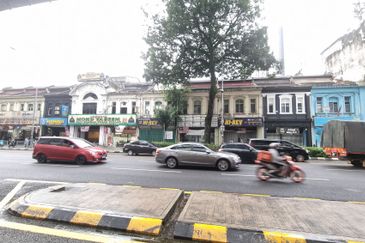
Jalan Tuanku Abdul Rahman
KL City, Kuala Lumpur
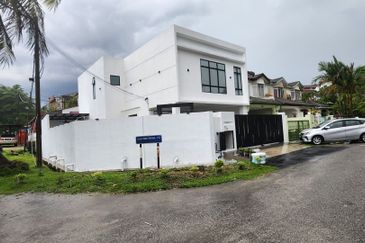
Bandar Damai Perdana, Kuala Lumpur, Kuala Lumpur
Cheras, Kuala Lumpur
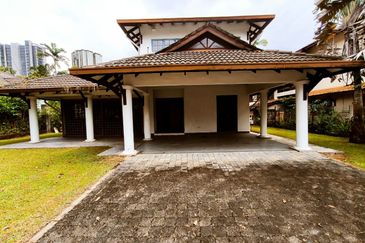
Damansara Heights (Bukit Damansara)
Damansara Heights, Kuala Lumpur



